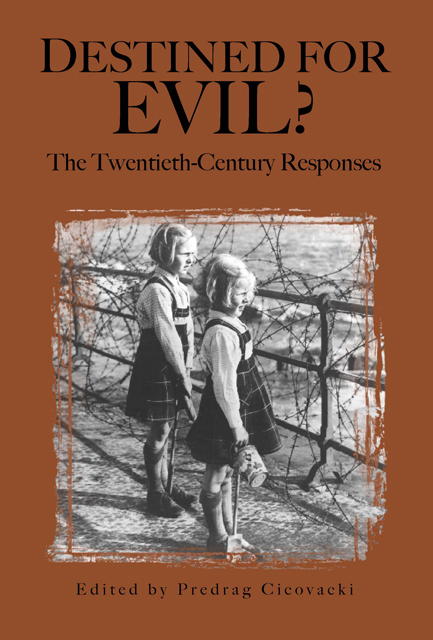Book contents
21 - The Trial of Man and The Trial of God: Job and Dostoevsky’s Grand Inquisitor
Published online by Cambridge University Press: 17 March 2023
Summary
All great books are books of unlearning. Regardless of what they may teach us, no matter what novelty they bring, these works invariably lead us away from our well-trodden paths and thus expose our cherished illusions. All great books take away our crutches and force us to walk on our own two feet.
The ancient Book of Job and Dostoevsky's Brothers Karamazov are two such books. Although composed in different eons, they stand beside each other like two complementary reflections of the same reality. Both epics center on what Sophocles called the most mysterious of all questions: What is man?, and both Dostoevsky and the mysterious writer of the Book of Job approach this wonder through man's affiliation with God. While the biblical tale indicates that the answer to this riddle is in the hands of God, Dostoevsky's modern drama turns the story around by suggesting that the enigma of God can be resolved only through solving the riddle of man. In the Book of Job man is put on trial and God is to be his judge; in The Brothers Karamazov God is the accused and man presides over his trial. Paradoxically, however, these trials teach us more about these alleged judges and prosecutors than about the accused, and in both cases many of our misconceptions about those enforcing justice are dispelled. What are, then, those misconceptions and how can we liberate ourselves from them?
The Book of Job is about a trial of man. Job's integrity, indeed, every man's integrity is tested in the most challenging way: Does he respect God for the right reason? Is he pious and obedient only because of his self-interest and pride; or is there something else that can motivate man's inner convictions and external behavior? Unlike his friends, Job gets a passing mark from his judge, God. He emerges from his trial as if reborn, spiritually stronger and wiser.
That life itself is a trial is an idea as old as the human race. We find its countless illustrations and endless variations in mythology, religion, art, and everyday experience.
- Type
- Chapter
- Information
- Destined for Evil?The Twentieth-Century Responses, pp. 249 - 260Publisher: Boydell & BrewerPrint publication year: 2005

